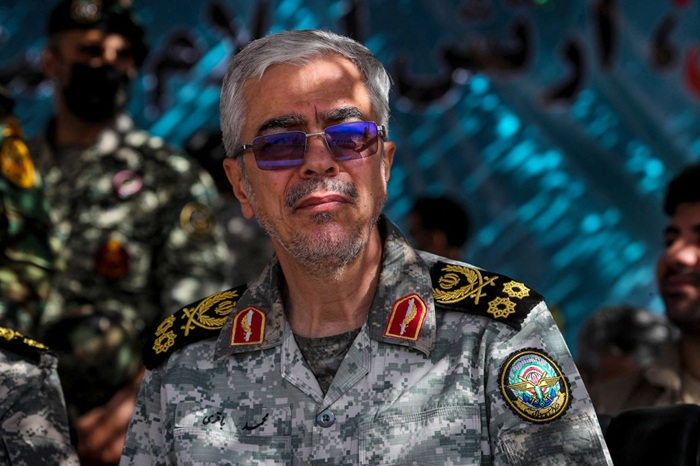
Major General Mohammad Bagheri, the chief of staff of Iran’s armed forces, was killed by Israeli strikes, Iran’s state TV IRINN reported.
Bagheri, Iran’s highest-ranking military officer, is the second senior figure known to have been killed by Israel’s unprecedented attack on Iran in the early hours of Friday.
Multiple Iranian state media outlets reported earlier on Friday that General Hossein Salami, the commander-in-chief of Iran’s Islamic Revolutionary Guard Corps, was killed in Israel’s overnight strikes.
The IRGC is one of the most powerful tools wielded by the Iranian state, overseeing its ballistic missile development, crushing dissent at home and projecting Iranian and military power in the Middle East region.
Born in 1960, according to a United States sanctions docket, Salami had headed the secretive agency since 2019. As head of the IRGC, he reported directly to Iran’s Supreme Leader Ayatollah Ali Khamenei and was among the country’s most powerful and influential figures.
Israel carried out what it called a “deception operation” in the days leading up to its unprecedented strikes aimed at making the Iranian leadership and the Israeli public believe there would be no attack, an Israeli official has told CNN.
The official said the operation included the “deception” of media and political commentators and “thus managed to surprise Iran.”
They said the plan had only “a few secret partners” and that Israeli Prime Minister Benjamin Netanyahu’s office had distributed announcements and briefings aimed at influencing discourse in Iran and Israel.
Despite the apparent campaign, US intelligence warnings that an Israeli strike was imminent began to be reported by US media on Thursday, following comments from President Donald Trump and a US State Department decision to move non-essential staff from embassies in Iraq and around the Middle East.
Iran’s Armed Forces spokesperson Brigadier General Abolfazl Shekarchi warned that Tehran would retaliate after Israel’s strikes – saying that the US and Israel would both “pay dearly,” despite Washington’s assertions that it had not been involved.
“The Islamic Republic of Iran will definitely retaliate, and the enemy will pay a heavy price,” Shekarchi told Iranian state media IRNA. Israel and the US “will pay dearly and will be dealt a harsh blow,” he said.
He said residential areas had been hit in the strikes, and that armed forces are on the ground at full readiness.
On Wednesday ahead of the strikes, the US withdrew many non-essential personnel and their families from locations around the Middle East. Officials did not say what specifically prompted the move, but a defense official said US Central Command was monitoring “developing tension in the Middle East.”
President Donald Trump and senior White House officials were expecting the Israeli strikes on Iran Thursday night, two sources familiar with the matter told CNN. After the strikes, Secretary of State Marco Rubio said there was no US involvement or assistance in the attack.
The International Atomic Energy Agency (IAEA) is “closely monitoring the deeply concerning situation in Iran,” it said Friday.
“The IAEA … can confirm Natanz site among targets. The Agency is in contact with Iranian authorities regarding radiation levels. We are also in contact with our inspectors in the country,” Director-General Rafael Grossi said.
Earlier, Israel Prime Minister Benjamin Netanyahu said “Operation Rising Lion” had struck Iran’s main enrichment facility in the city of Natanz, nuclear scientists, and what he called “the heart of Iran’s ballistic missiles program.”
The nuclear complex in Natanz, a city about 250 kilometers (150 miles) south of the capital Tehran, is considered Iran’s largest uranium enrichment facility and houses the country’s advanced nuclear program. Analysts say the site is used to develop and assemble centrifuges for uranium enrichment, a key technology that turns uranium into nuclear fuel. (CNN)
